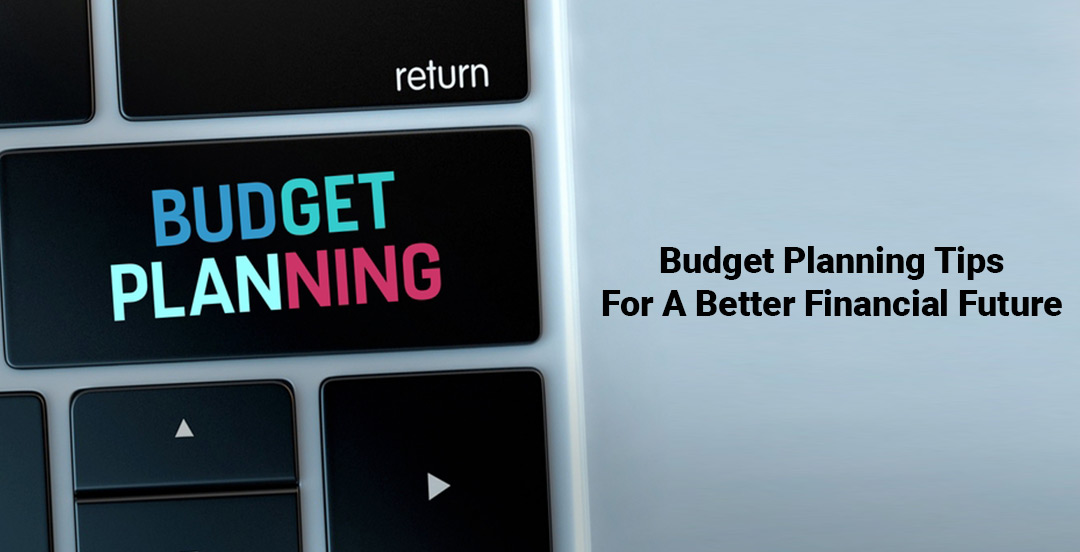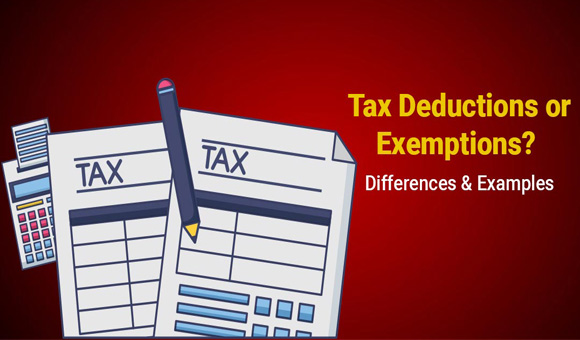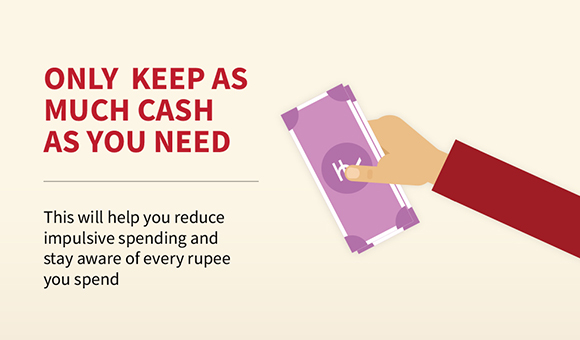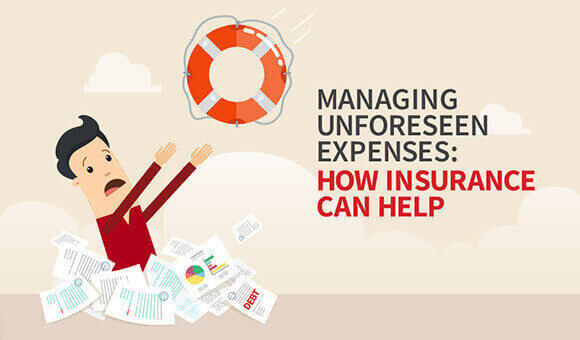Are you overestimating your income when budgeting!

"I am living so far beyond my income that we may almost be said to be living apart" - E.E. Cummings
If you overestimate your income, you will end up spending more than you earn despite budgeting because you will spend with the assumption of having a larger income. Ideally, your actual income is the amount you are left with after tax, and any other deductions are made. To make the most of your budget, you must assess all your incomes and expenses correctly.
Let's look at some cases to know how you can avoid money-related stress by avoiding overestimation of your income.

Case 1
Situation: My business is seasonal, and payments usually take two to three months to come through. I earn well from March to October and have about three to four months of low business. How do I ensure my family’s expenses are always taken care of?
Tried and tested solution: It’s fairly simple – start paying yourself a monthly salary!
Step 1 - Calculate the minimum amount you need to pay for your family’s most basic, essential expenses – rent, EMIs, groceries, children's school/college fees, utility bills, transportation, etc.
Step 2 - Calculate the minimum amount you need to pay for the ‘wants’ of each family member – entertainment, dining out, mobile plans, Wi-Fi, etc.
Step 3 - Include the minimum amount you must save each month to achieve your current short-/mid-/long-term goals – gifting your daughter a bicycle, buying a new fridge by Diwali, saving for your child's education, a bigger house, or retirement, etc. Add the above expenses to know the total amount you need to take care of your monthly expenses.
Step 4 - Calculate the minimum income you can expect in different months by looking at your business’ balance sheet for the last six to nine months.
Step 5 - Calculate whether your expected expenses can be covered with your expected minimum income. If not, cut down on the least important expenses.
Step 6 - From your business account, pay yourself a salary at the beginning of each month to cover all the essential needs and some wants.
Step 7 - This way, during the high earning months, you can amass enough savings to survive the low earning months and even invest some of it back into your business.
Pro tip: Once you’ve saved a substantial amount, start setting aside some money every month to build an emergency fund to take care of your expenses during unexpected situations such as a medical emergency, loss in business, etc. Don’t forget to get medical and life insurance plans to further safeguard your family against emergencies. To understand more, read our article on paying yourself first.

Case 2
Situation: My income varies depending on the number of hours and clients I work for. I excessively depend on my credit card and take small loans for irregular purchases. Is there a way for me to manage my expenses on an irregular income and avoid piling too much debt?
Tried and tested solution: Follow these steps to budget on an irregular income:
Step 1 - Calculate the minimum amount you need to pay for your family’s most basic, essential expenses - rent, EMIs, groceries, children's school/college fees, utility bills, transportation, etc.
Step 2 - Calculate the minimum amount you need to pay for the ‘wants’ of each family member – entertainment, dining out, mobile plans, Wi-Fi, etc.
Step 3 - Include the minimum amount you must save each month to achieve your current short-/mid-/long-term goals – gifting your daughter a bicycle, buying a new fridge by Diwali, saving for your child's education, a bigger house, or retirement, etc.
Add the above expenses to know the total amount you need to take care of your monthly expenses.
Step 4 - Calculate the minimum income you can expect in different months by looking at your monthly earnings from the last six to twelve months. When budgeting with an irregular income, it’s best to consider the minimum income rather than an average, as you can always add to this amount when you earn more.
Step 5 - Calculate whether your expected expenses can be covered with your expected minimum income. If not, cut down on the least important expenses.
Step 6 - Keep at least two bank accounts – one each for savings and expenses. Whenever you earn more than your expected minimum income, keep the extra funds into your savings account. Then, use it to repay debts faster, build or replenish your emergency fund, or to save more towards a goal.
Step 7 - When budgeting with an irregular income, your budget may have to be re-adjusted based on each month’s earnings.
Step 8 - Treat yourself every time you reach a milestone or set aside some ‘me money’ for discretionary expenses, as this will keep you motivated to stick to your budget.
"Work is a sure-fire money-making scheme." - Dave Ramsay
Pro-tip: To achieve your goals sooner, and become more financially independent, find ways to earn more money. Never rely on a single irregular income, invest to create additional sources of income, learn new skills, etc.

Case 3
Situation: I have a fixed salary. I also get quarterly and annual bonuses based on my performance. Can I add these extra earnings to the monthly income I budget with?
Tried and test solution: Your monthly salary is fixed, and the bonuses are irregular incomes you earn every three months and once a year. Try dividing any irregular extra funds using the following steps:
Step 1 - Your monthly budget should be created basis your fixed income – your monthly salary.
Step 2 - Make sure you record all your expenses – essential and non-essential. Check whether your monthly income can cover them.
Step 3 - If your expenses cost more than your fixed monthly income, identify non-essential expenses that can be cut down to accommodate the most important expenses within this income.
Step 4 - Consider your bonuses as extra funds of the months in which these are earned. Use these to clear credit card bills, pre-pay a loan, replenish your emergency fund, or to save more for a goal.
Step 5 - Set aside 10% of your income to spend on anything you wish to.
"If you want something you've never had, you'll have to do something you've never done." - Dave Ramsay
Pro tip: Instead of taking loans, save up for your goals. When you build a considerable savings corpus, invest some of it to make your money grow. Read more on where to find extra money you can save to add to your budget.
Remember, if you overestimate your income you may end up in any of the following situations:
- You may struggle to even pay for basic monthly expenses.
- You may end up with no funds to pay for your expenses during unforeseen situations.
- You may pile up more debt than you can comfortably repay.
- You may fail to achieve your financial goals.
Related Topics

- Managing Money
Jaanniye Aasaan Tareeke EMI Ka Bhugtan Minton Mein Karne Ke!
Jaanniye Aasaan Tareeke EMI Ka Bhugtan Minton Mein Karne Ke!

- Managing Money
Which Saving Schemes Are The Best To Invest?
Saving money is a crucial aspect of financial planning, and choosing the right saving schemes can significantly impact your wealth accumulation.

- Managing Money
Boost Your Income With 3 Best Investment Plans
In a dynamic and ever-changing economic landscape, the quest for financial stability and growth is a common pursuit.

- Managing Money
Tax Planning For Salaried Employees - How To Save More?
Tax planning is a crucial aspect of financial management for salaried employees.

- Managing Money
Budget Planning Tips For A Better Financial Future
In a world marked by economic uncertainties and rapidly changing financial landscapes, effective budget planning is the cornerstone of a secure and prosperous future.

- Managing Money
Ways to Get in Better Financial Shape in 2024
As we step into a new year, many of us are eager to make positive changes in our lives, and one area that often takes center stage is our finances.

- Managing Money
How Can Personal Loans Help You Achieve Financial Independence?
In a world where financial goals often seem elusive, personal loans emerge as versatile tools that can empower individuals on their journey towards financial independence.

- Managing Money
How Personal Loan Apps Are Leading To A Financially Healthy India?
In recent years, the landscape of personal finance in India has undergone a transformative shift, thanks to the emergence of innovative financial technologies.

- Managing Money
How to Set Personal Finance Goals?
In the pursuit of financial stability and success, setting clear and achievable personal finance goals is a crucial step.

- Managing Money
6 Steps to Crafting the Perfect Money Management Plan
Managing your money wisely is like steering a ship through choppy waters – it requires planning, careful navigation, and a clear destination in mind.

- Managing Money
4 Steps to Build Personal Financial Discipline
Understanding taxes can be a bit tricky, but it's crucial for managing your finances effectively.

- Managing Money
5 Tips to Spend Less & Save More this Festive Season
The festive season is a time of joy, celebration, and togetherness.

- Managing Money
4 Investment Options to Start with This Festive Season
The festive season is not just a time for celebrations and joy; it's also an opportune moment to invest and grow your wealth.

- Managing Money
Financial Lessons To Learn From the Holiday Season
The holiday season is a time of joy, celebration, and spending time with loved ones.

- Managing Money
How to Set S.M.A.R.T Financial Goals?
In today's fast-paced world, setting financial goals is crucial to secure a stable future.

- Managing Money
Tax Deductions vs. Exemptions – Differences & Examples
Understanding taxes can be a bit tricky, but it's crucial for managing your finances effectively.

- Managing Money
5 Signs You Need to Revise your Money Goals
Money goals are like a roadmap for your financial journey. They help you navigate through life, ensuring you reach your desired destination of financial stability and security.

- Managing Money
7 Best Investments Options in India
Are you thinking about making your money work for you? Investing is a smart way to grow your savings over time.

- Managing Money
7 Ways to Teach Financial Literacy to Children
In a world where financial decisions play a crucial role in shaping our lives, imparting financial literacy to children has become more important than ever.

- Managing Money
What Your Lifestyle Reveals About Your Financial Future?
Have you ever wondered what your everyday choices say about your financial future? The way you live, spend, and save can give valuable clues about where your finances might be headed.

- Managing Money
7 Easy Ways to Control Overspending
Overspending can sneak up on anyone and put a dent in your wallet. But fear not, because managing your spending doesn't have to be complicated!

- Managing Money
How to Save Taxes Beyond Section 80C?
Wealth planning is essential for achieving financial security and prosperity. However, the road to build and preserve wealth is not without its share of risks. To ensure a successful journey, it is crucial to understand and effectively manage these risks. In this blog, we will explore the concept of risk management in wealth planning.

- Managing Money
Understanding Risk Management in Wealth Planning
Wealth planning is essential for achieving financial security and prosperity. However, the road to build and preserve wealth is not without its share of risks. To ensure a successful journey, it is crucial to understand and effectively manage these risks. In this blog, we will explore the concept of risk management in wealth planning.

- Managing Money
4 Most Common Types of Dividend Policies
When investing in the stock market, one of the most attractive aspects for investors is the potential to receive dividends. A dividend is a portion of a company's profits that is distributed to its shareholders. However, not all companies follow the same approach when it comes to distributing dividends.

- Managing Money
Long-term vs. Short-term Investments: Pros and Cons
When it comes to investing your hard-earned money, it's important to have a clear strategy in mind. Two common approaches are long-term and short-term investments.

- Managing Money
10 Effective Budgeting Strategies for Saving Money
Budgeting is a fundamental skill that empowers individuals to take control of their finances and work towards their financial goals. Creating a budget helps you track your income and expenses, identify areas where you can save money, and make informed financial decisions.

- Managing Money
Investing Wisely: Tips for Growing Your Wealth
Building wealth is a goal shared by many, but it can often seem like a complex and overwhelming task. However, with a few simple strategies and a basic understanding of investing, you can set yourself on the path to financial success.

- Managing Money
Building an Emergency Fund: Why It's Important & How to Start?
Life is full of surprises, and emergencies can happen when we least expect them. Whether it's a sudden medical expense, a car repair, or a job loss, having a financial safety net can make a world of difference.

- Managing Money
What is a Goal-based Investment & how should you do it?
When it comes to managing our finances, many of us are often unsure of where to begin. We may have dreams and aspirations, such as buying a house, funding our children's education, or retiring comfortably. However, without proper financial planning, these goals can remain distant dreams.

- Managing Money
How to Secure Your Investments During Inflation?
As a moneymaker, you have worked hard to build your portfolio and want to see solid returns over time. However, during periods of high inflation your investments and returns can come under pressure.

- Managing Money
How to Use 80C Deductions to Reduce Your Tax Burden?
Ever feel like you're paying too much in taxes each year? You're not alone. As a salaried employee, a huge chunk of your income goes towards taxes. But here's the good news: there are legal ways to reduce your tax burden. Section 80C of the Income Tax Act 1961 allows you to claim deductions on select investments and expenses.

- Managing Money
Common Mistakes to Avoid While Filing Income Tax Returns
You’re probably already aware of the need to file your income tax return (ITR) every financial year. But did you know that there are some common mistakes associated with filing ITRs? It’s important to be aware of these mistakes so that you can avoid them and make sure your ITR filing is accurate and effective.

- Managing Money
Old vs New Tax Regime: Which is the Best Option for You?
Tax planning plays an important role in managing finances effectively. With the introduction of the new tax regime in India, taxpayers now have the option to choose between the old and new tax regimes based on their financial goals and circumstances.

- Managing Money
Saving Vs. Investing: What’s The Difference?
Do you ever find yourself confused about the difference between saving and investing? You're not alone! While both involve putting money aside for the future, they are two distinct financial strategies.

- Managing Money
Where can you find extra funds to save!
Every small drop makes an ocean. Similarly, every rupee you save could come to use in the future. In this article, we offer you ways to save money in the most unlikely of ways.

- Managing Money
7 Budgeting pitfalls that can push your finances off track
Feel like your budget isn’t quite working? You could be making any of the budgeting mistakes listed here. Read on to know how Seema and Uday fixed their budgets successfully.

- Managing Money
Setting smart financial goals
It’s not just about how much you save. It’s also about how S.M.A.R.T you save. Find out what they are for you and how you can save for them.

- Managing Money
Right time to start saving: In your 20s or 30s!
This infographic shows when you should start saving and why through Aisha and Riya’s stories.

- Managing Money
Why is it important to have an emergency fund, How can you build one!
An emergency fund can provide a cushion in various situations. Read on to understand why you need it, and how you can build one.

- Managing Money
Where to park your emergency savings!
While emergency funds are meant to be easily accessible, that doesn’t mean you should store it all in cash. Instead, follow these tips to keep them secure yet accessible.

- Managing Money
How to start saving money
This article talks about old and new ways of saving money. It also mentions quick tricks to save more from everyday expenses.

- Managing Money
How to figure out how much to save in an emergency fund!
If you want to save but don’t know how much to, read this infographic to choose a method that suits you best from three easy options.

- Managing Money
How important is it to have medical insurance!
Sameer understood the importance of having medical insurance only after getting into an accident. Here’s what you can learn from his experience.

- Managing Money
How to keep your money safe from yourself!
Make your budget water-tight by using these tips to keep yourself from misspending your money.

- Managing Money
Teach your kids the whys and hows of money management
Responsible children grow up to be wise adults. Give your children the tools to become financially successful in the future with these tips.

- Managing Money
Know where all your money is going before you start budgeting
Vidhi complains to Arvind that despite budgeting as he had suggested, she still isn’t saving enough. Read this comic strip to know why and how Arvind helped her find a way to save thousands of rupees!

- Managing Money
Why should I save money when getting loans is so easy!
While taking a loan might be an easy option, it’s not advisable to borrow unnecessarily. Learn more about benefits of saving regularly and consistently.

- Managing Money
10 steps that can make a big difference in your budget
Having a fool-proof budget can get you on the right financial track. Use these 10 tips to keep your finances on track.

- Managing Money
How can you protect your family with life insurance!
Sahu ji is worried about his family’s wellbeing but doesn’t have a life insurance plan yet. Arvind helps him understand why it is important to get one.

- Managing Money
9 modern ways to save money
ONLY KEEP AS MUCH CASH AS YOU NEED This will help you reduce impulsive spending and stay aware of every rupee you spend

- Managing Money
8 budgeting apps that can make money management easier
GET SMART WITH YOUR MONEY MVELOPES. It divides your expenses into separate categories or 'envelopes' and allows you to set spending limits.

- Managing Money
How can insurance help you deal with emergencies!
Having an insurance plan is like having a life jacket – you won’t know how useful it is unless you really need it. Read on to understand how the most common types of insurance plans can help you.

- Managing Money
Questions you didn't know whom to ask about budgeting
Do you want to start budgeting but don’t understand how? We’ve answered budgeting FAQs that can help you kickstart your journey.

